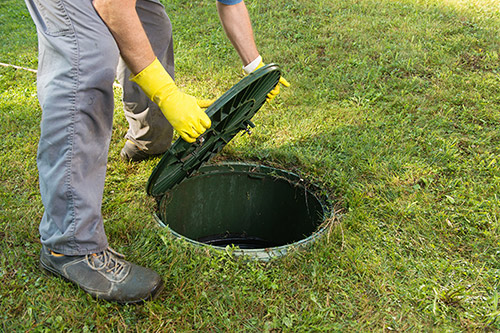
Q: I’m looking to buy a property that has an existing structure that hasn’t been used in 12-plus years. It has a well and septic but the status and placement of the septic system is unknown.
A: A well-designed and maintained conventional septic system should provide 20 to 30 years of service before the drain field needs to be replaced. A lightly used system could last a lot longer.
There is no foolproof way to determine how many years of life you can expect from a functioning system, but a thorough inspection can determine whether the system is currently working properly. If not, you can identify what type of immediate repairs and improvements are needed to fix the system and bring it up to current standards. Since a complete new system can cost several thousand dollars, and an “alternative” system can cost even more, hiring a professional to inspect the would be money well spent.
The first step is to find out as much as you can from the previous owner and the local health department. Ask:
- When was the system installed?
- Was the system properly designed, permitted, and inspected by the town or county?
- How often was the septic tank pumped?
- Does the health department have an “as-built” plan on file that would show the design and location of the components?
Also ask the local health department what type of inspection and/or upgrade might be required by the town upon transfer of title. If the septic systems has to be brought up to the current building codes when the property is sold, this can mean building a new system from scratch. In that case, a perc test and deep-hole test are in order to determine the soil conditions and seasonal high water table.
Assuming that the current system can be reused, your preliminary research will give you a better idea of the age and condition of the system, as well as its location on the site. A visual inspection of the site can sometimes identify obvious problems such as trees or traffic over the leach field or wet, smelly soil over a failed leach field.
A professional inspector can examine the septic tank for leakage of groundwater into the tank or leakage out of the tank, both of which can cause problems.
For more information, contact Morse Engineering and Construction.
Source: buildingadvisor
